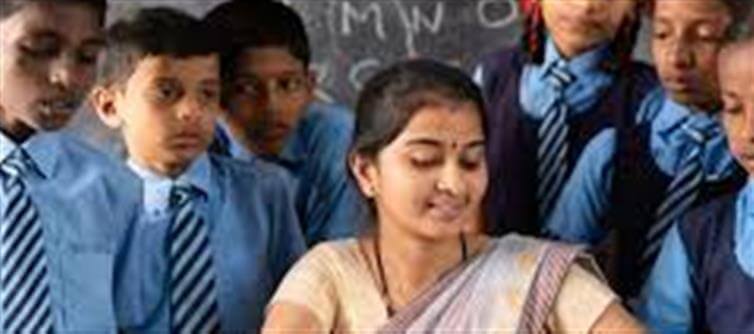
If you thought earning a B.Ed. degree was the golden ticket to becoming a government school teacher — think again!
In a major update, the Supreme court of India has ruled that B.Ed. degree holders cannot apply for Primary Teacher (PRT) positions.
This decision has created a stir among thousands of aspiring teachers, especially those preparing for central and state-level teacher recruitment exams. Let’s break down what this means — and how it affects PRT, TGT, and PGT eligibility going forward.
1. supreme Court’s Big Decision: B.Ed. degree Not Valid for PRT Posts ⚖️
The supreme court recently upheld the National Council for Teacher education (NCTE) guidelines, which specify that only candidates with D.El.Ed. (Diploma in Elementary Education) or equivalent qualifications are eligible for Primary Teacher (PRT) posts.
What It Means:
· B.Ed. candidates are no longer eligible for primary teaching posts (Classes 1–5).
· The court observed that the teaching methods and training for primary and secondary levels are different.
· Hence, candidates trained for upper classes (via B.Ed.) cannot be considered suitable for foundational-level teaching.
🧾 Context:
Earlier, B.Ed. degree holders were temporarily allowed to apply for PRT posts (as per an NCTE notification in 2018). However, this permission has now been struck down by the apex court.
2. Who Can Now Apply for PRT (Primary Teacher) Jobs 🏫
If you want to become a Primary Teacher (Classes 1 to 5), you must have one of the following qualifications:
✅ Essential Qualifications:
· Senior Secondary (10+2) with at least 50% marks, and a 2-year D.El.Ed. (Diploma in Elementary Education)
OR
· Senior Secondary (10+2) with at least 50% marks, and a 4-year B.El.Ed. (Bachelor of Elementary Education)
✅ Additional Requirement:
· Must have cleared CTET (Paper 1) — the Central Teacher Eligibility Test for Classes 1–5.
🚫 Not Eligible:
· B.Ed. degree holders (without D.El.Ed. or B.El.Ed.) can no longer apply for PRT posts.
3. What About TGT and PGT Posts? — B.Ed. Still Valid Here 🎓
While B.Ed. is no longer valid for PRT recruitment, it remains mandatory for TGT (Trained Graduate Teacher) and PGT (Post Graduate Teacher) posts.
Here’s a quick breakdown:
Category
Classes
Qualification
Eligibility Test
PRT (Primary Teacher)
1–5
D.El.Ed. / B.El.Ed.
CTET Paper 1
TGT (Trained Graduate Teacher)
6–10
Graduation + B.Ed.
CTET Paper 2 / STET
PGT (Post Graduate Teacher)
11–12
Post Graduation + B.Ed.
STET / School-specific exam
In Short:
· B.Ed. is not valid for PRT.
· B.Ed. is essential for TGT and PGT posts.
4. Why the court Took This Decision 🧠
The supreme Court’s decision was based on a key educational principle — age-appropriate pedagogy.
Teachers for younger children need specialized training in early childhood education, classroom behavior, and foundational learning — areas covered in D.El.Ed. and B.El.Ed. courses, but not in B.Ed.
The court Noted:
“Teaching small children requires specialized training focused on early learning and foundational education. B.Ed. is designed for secondary and senior secondary levels.”
This ensures that students in primary schools receive age-appropriate learning support from teachers trained specifically for that stage.
5. Impact on Aspiring Teachers 👩🏫
This ruling will affect lakhs of B.Ed. graduates who were preparing for primary teacher recruitment across central and state boards.
Implications:
· Candidates with only B.Ed. must now pursue D.El.Ed. if they want to teach in primary schools.
· B.Ed. holders should focus on TGT or PGT vacancies instead.
· Upcoming recruitment notifications (like KVS, NVS, DSSSB, and State PRT Exams) will follow this rule strictly.
6. What Should Aspiring teachers Do Now? 💡
If you are a B.Ed. holder:
· Focus on TGT or PGT posts — these offer excellent career growth and stability.
· Keep an eye on upcoming CTET (Paper 2) or State TET exams.
If you aim to teach at the primary level:
· Enroll in a D.El.Ed. or B.El.Ed. program.
· Prepare for CTET Paper 1 or your state’s primary-level TET exam.
Final Words: Plan Your Teaching Career Smartly 🏆
The supreme Court’s verdict brings much-needed clarity to teacher eligibility norms.
Now, only those with elementary-level training (D.El.Ed./B.El.Ed.) can teach primary classes, while B.Ed. remains crucial for middle and senior-level teaching roles.
If you’re a teaching aspirant, align your qualification and preparation strategy accordingly — and keep checking official updates from NCTE and CTET for any new guidelines.
Disclaimer:
The views and opinions expressed in this article are those of the author and do not necessarily reflect the official policy or position of any agency, organization, employer, or company. All information provided is for general informational purposes only. While every effort has been made to ensure accuracy, we make no representations or warranties of any kind, express or implied, about the completeness, reliability, or suitability of the information contained herein. Readers are advised to verify facts and seek professional advice where necessary. Any reliance placed on such information is strictly at the reader’s own risk..jpg)




 click and follow Indiaherald WhatsApp channel
click and follow Indiaherald WhatsApp channel